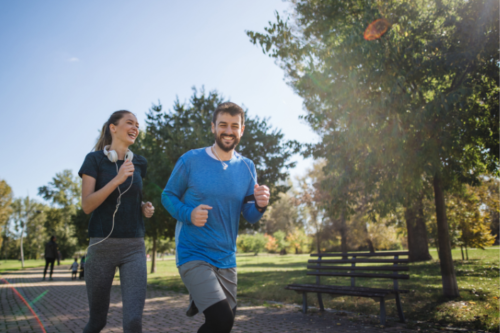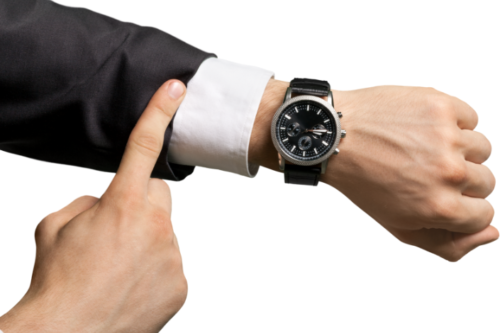Why is waking up so difficult in the morning? Most of us depend on caffeine to get our day started. More specifically, coffee. Coffee keeps us alert and awake, ready to deal with our daily lives. Its caffeine jolt acts as both a valuable treat and a helping hand.
For many of us, it is typical to have a cup right away in the morning, to rid ourselves of grogginess and propel ourselves to be up and at it. Let’s face it; it’s a rare day that we want to get up right when the alarm goes off, and coffee often sounds and perhaps smells like a saving grace. However, that may not be the best time to drink coffee so let’s explore what may possibly be the greatest time to do it.
This is ultimately unfortunate, however, because drinking coffee immediately upon waking up is in fact one of the two worst times to drink coffee. Remember when you were a child, and you would wake up without having coffee in the morning? Eventually, you would feel wide awake. That happened without consuming coffee.
What is Cortisol and Why is it Important?

This is because of the “wake up” hormone, otherwise known as cortisol. This hormone is produced by your brain in order to feed us energy throughout the day. It is not exclusive to children, and it is the central reason behind carefully considering when to consume your coffee.
Our body releases cortisol in specific intervals, and its first appearance is roughly thirty to sixty minutes after waking up. Therefore, when we get out of bed and immediately shuffle over to the coffee pot, we are cursing ourselves with exhaustion.
Coffee Can Prevent You from Having Energy!

When caffeine is consumed before your body has had the chance to accept its own energy source, it blocks what would otherwise have been natural energy, because the brain no longer thinks it needs it. Sooner or later, the coffee’s boost will wear off and you will be without your natural energy.
This is why many of us experience a crash in the middle of the day. Waiting to drink coffee until a couple hours after waking would be the best method to prevent these issues. As difficult as it may be to break the normal routine, it is highly recommended in order to get the full effect of coffee.
However, wait too long, and you may run into one of the other cortisol intervals, such as the one that comes mid-day. Our body fuels us on the “wake-up” hormone throughout the entire day, because we don’t just need to stay awake in the morning. Thus, it is recommended to have your coffee in the middle of the two halves of the day.
Eventually, day becomes night, and unless there is a specific circumstance where staying up through the night is needed, it is not recommended to consume coffee or any sort of caffeine before bed. How long before bed can caffeine be safely consumed without slaughtering sleep does slightly depend on the person and their schedule.
The Benefits of Drinking Coffee in the Morning

There’s a reason why so many people can’t start their day without a cup of coffee: caffeine is a stimulant that can help you wake up and get moving. Drinking coffee first thing in the morning can also help you feel alert and focused, leading to increased productivity. In addition, some studies have shown that drinking coffee in the morning can improve glucose metabolism and lower the risk of type 2 diabetes. If you get a boost by drinking coffee in the morning, then stick with it. If not, then read the next few sections to determine if you should drink it later.
The Benefits of Drinking Coffee During Midday

If you find yourself hitting an afternoon slump, a cup of coffee can give you the boost of energy you need to power through the rest of your day. Drinking coffee during midday can also help improve your mood, focus, and alertness.
However, be careful not to overdo it in the late afternoon. Drinking coffee too late can affect your sleep, making it difficult to get a good night’s rest.
The Benefits of Drinking Coffee Before a Workout

Many athletes and fitness enthusiasts swear by a cup of coffee before a workout. In fact, I’ve personally tested it and have LOVED it. This is because caffeine can help increase endurance, improve reaction time, and boost energy levels.
Drinking coffee before exercise can also help reduce muscle pain and soreness, allowing you to recover faster. It’s like drinking coffee before a workout is like having an amazing pre-workout.
The Benefits of Drinking Coffee in the Evening or Before Bed

If you can tolerate caffeine well, you may find that drinking coffee in the evening or before bed can help you wind down and relax. While caffeine can disrupt sleep, some people are able to tolerate it better than others. I found out the hard way that drinking coffee past 5 pm can keep me awake until 3 am which is pretty crazy.
If you want to drink coffee later on in the day, then consider drinking decaffeinated coffee.
Okay, But When Is The Best Time To Drink Coffee Scientifically?

According to scientific research, it is best to drink coffee in the morning or early afternoon. Caffeine has been found to have positive effects on alertness and performance when consumed during those times. But there’s a caveat here.
Scientists say that biologically our cortisol hormone levels peak between 8:00-9:00 a.m., 12:00-1:00 p.m., and then in the evening from 5:0 to 6:00 p.m. Drinking coffee in these windows is a wasted effort. Your best bet is to drink coffee in between these cortisol peak times for when you actually NEED a boost of caffeine!
When is the Best Time to Drink Coffee When Breastfeeding?
There isn’t an exact science here but experts recommend that you should have coffee after feeding the baby and they suggest waiting 3-4 hours for the caffeine to leave your system so you can feed your baby again.
Of course, if you’re worried about passing on caffeine intake to your baby through breast milk, then quit coffee altogether.
When is the best time to drink coffee for weight loss?
Drinking coffee can help you lose weight but only if it’s consumed at the right times. It’s best to drink coffee in the morning or early afternoon for maximum benefit. Coffee can help boost your metabolism which leads to improved fat burning and weight loss. Thank goodness!
However, you should also pay attention to what you’re adding to your coffee. Try to avoid sugary syrups and creamers as they add extra calories without providing any nutrition. Opt for healthier alternatives like almond or coconut milk instead.
Studies have shown that coffee can be beneficial for weight loss when consumed responsibly and in moderation. However, it’s important to remember that coffee should not be used as a meal replacement or stand-alone weight loss solution. A balanced diet and regular exercise are still the most effective ways to lose weight.
If you’re considering drinking coffee for weight loss, be sure to discuss it with your doctor to ensure the best possible outcome. Keep in mind that drinking coffee can provide short-term benefits but won’t necessarily help you lose weight or recover faster in the long run. Instead, focus on creating healthy habits and maintaining a consistent diet and exercise routine for better results.
Final Thoughts
It’s safe to say that caffeine should be avoided for no less than four hours before bed, to ensure its effects are diminished unless you’re lucky and caffeine doesn’t have much of an affect on you.